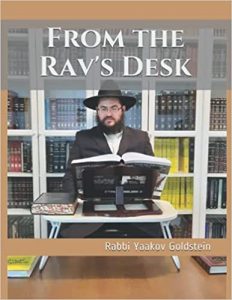

*As an Amazon Associate I earn from qualifying purchases.
How many Basherts or Zivugim does a person have? One, Two, Seven?
- Question:
I have heard many times that every person has seven possible Zivugim or Basherts that had been ordained for them from heaven. Does this mean that Hashem sets up every Jew with seven potential spouses that fit their personality and a person marries one of the seven? Doesn’t this cheapen the whole idea of marriage if the person you married is just one out of your seven possible spouses not your exact other half? Likewise, if true, that would mean that we share soul connections to seven other people of the opposite gender, and that our spouse likewise shares soul connection to six other people other than us, which really cheapens the preciousness of our marriage and unity. Is there even a source for such a concept?
Answer:
Although it is popularly quoted that every person has seven Zivugim, this concept has no source in Jewish literature that I am aware of, and on the contrary, contradicts the explicit sources that we have which state that every individual has only one main Zivug which is the exact parallel or other half of his soul [i.e. Zivug Rishon], and only if it doesn’t work out for whatever reason then Hashem sets up the person with a second Zivug [i.e. Zivug Sheiyni] who is a person that is compatible with one’s level of religiosity and righteousness and has some soul relation, even though they are not exactly one’s literal other half.
Explanation:
The Gemara states that there are two types of destined wives. One is called a Zivug Rishon, while the latter a Zivug Sheiyni. The first Zivug is determined according to Mazal, in which they are compatible, while the second is in accordance to one’s righteousness, and thus since they are not compatible, on this marriage it says that it is as difficult to bring them together as the splitting of the sea. The Yavetz explains, based on the Zohar, that the 1st Zivug is his exact other half of his soul, and that one only has one such Zivug. Now, there is debate amongst the Rishonim and commentators as to whether one always ends up first marrying his first Zivug, and only then may end up marrying his second Zivug, or if it is possible to first marry one’s second Zivug, and then marry his first Zivug.
An interesting perspective offered in the teachings of the Arizal is that the above Talmudic statement about the two possible spouses is not to be taken literally at all, as in truth a man only has a single Zivug, soulmate, which is destined for him, however due to reincarnations for the sake of rectifying sinful activity of previous incarnations, one may end up marrying his soulmate a second time, in which case this is called a second Zivug. [Meaning, a second marriage to the same soulmate and not a marriage to a backup destined spouse.] According to this perspective, not only does man have only one spouse that is the other half of their soul, but furthermore, he only has one single Zivug destined for him to marry.
Now, as to the question regarding if a source exists for the concept that a person has seven potential spouses, this is omitted by all the above sources, and hence negated as seeming mere folklore and myth. However, a further point to contemplate is that which is recorded in the writings of the Arizal, that there exists other spouses which have some level of relation to one’s soul, and hence if it is not possible for him to marry his exact other half, then Hashem will set him up with a near soul relative. Now, perhaps one can entertain that since there exists seven emotional attributes, thereby there exists seven potential soul relatives that one can marry despite it not being one’s exact other half. Vetzaruch Iyun! Whatever the case, I would contend that source-less ideas not be spread and asserted as facts, and rather when discussing the subject it should be emphasized that every person has one single half of the soul whom he is destined to marry.
To note, that it is clear from the sources that it is possible for someone to marry someone who is not their Zivug at all, due to their own freedom of choice which God granted man in choosing to fulfill the mitzvah of marriage, and hence the whole idea of marrying the other half of one’s soul, is an aspiration and not a guarantee, hence being one of the possible explanations behind why a person needed to marry a second time.
Sources: See Sotah 2a; Hagahos Yaavetz on Sotah ibid; Moed Katan 18b; Sanhedrin 22a; Bava Basra 12b; Bereishis Rabbah 68:1; Zohar I, 91b, 207b, 229a; II, 170b; III, 283b; Sefer Chassidim 383; Arizal in Shaar HaGilgulim, Hakdamah 8 and Hakdamah 20; Sefer HaGilgulim, ch. 13; Likkutei Torah and Sefer HaLikkutim, Tehillim, ch. 48; Tzemach Tzedek in his Chiddushim to the Talmud, Moed Katan; Igros Kodesh 1:260


Leave A Comment?
You must be logged in to post a comment.